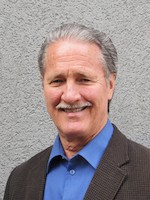October 2012
“Jesus replied: ‘Love the Lord your God with all your heart and with all your soul and with all your mind.’ This is the first and greatest commandment. And the second is like it: ‘Love your neighbor as yourself.’ All the Law and the Prophets hang on these two commandments.” –Matthew 22:37-40
Jesus identified the “greatest” commandment as being our full love of God and our full love of our neighbor. In other words, the full love of God is reflected by our full love of people. When asked, “Who is my neighbor?” Jesus gave us the parable of the “Good Samaritan” (Luke 10:25-37) to illustrate to the religious leaders that those considered outside of our favor or faith may indeed be the object of God’s love through us. The apostle John reminds us of the same thing: “If anyone says, ‘I love God,’ and hates his brother, he is a liar; for he who does not love his brother whom he has seen cannot love God whom he has not seen.” (I John 4:20)
To the degree that the Church in general, and all of is in particular, are not actively looking for opportunities to serve others both inside and outside of our Christian faith, we are manifesting something seriously incomplete in the nature of our love for God. God’s love encompasses the people of the earth and the nations of the earth even though He hates the sin that has invaded man’s nature. Jesus, therefore, commanded His followers to go out into the nations and disciple them as we teach them what He has taught us (Matt. 28:18-20).
While there are numbers of things wherein we believers all fall short and numbers of areas where the Church has lost credibility with the unbelievers, no area is of greater challenge to us than in our failure to give ourselves to the transformation of people and nations. It is very true that numbers of believers over the centuries have given extraordinary service to people and cultures. Christians have extended charity, started hospitals and schools, lead the elimination of slavery, and extended Christ’s love to large numbers of people. As wonderful as this is, it has largely been an extension of charitable love by the few rather than a lifestyle of the many. Both charity and evangelism must not be things we do. They must become who we are as people.
Today, the economic crisis threatens to become far deeper and more extensive than it now stands. Here in the U.S., twenty-three million workers are unemployed or underemployed. Over the next decade, many of our social systems will reveal their vulnerabilities. People will face even more serious challenges. This opportunity will offer us all a test of our faith; is it real and robust, or partial and self-centered? It is time to prepare our hearts and begin to ask God to stretch our hearts so His love can flow through them. The economic crisis foretells a crisis of love, and that is……the bottom line.







